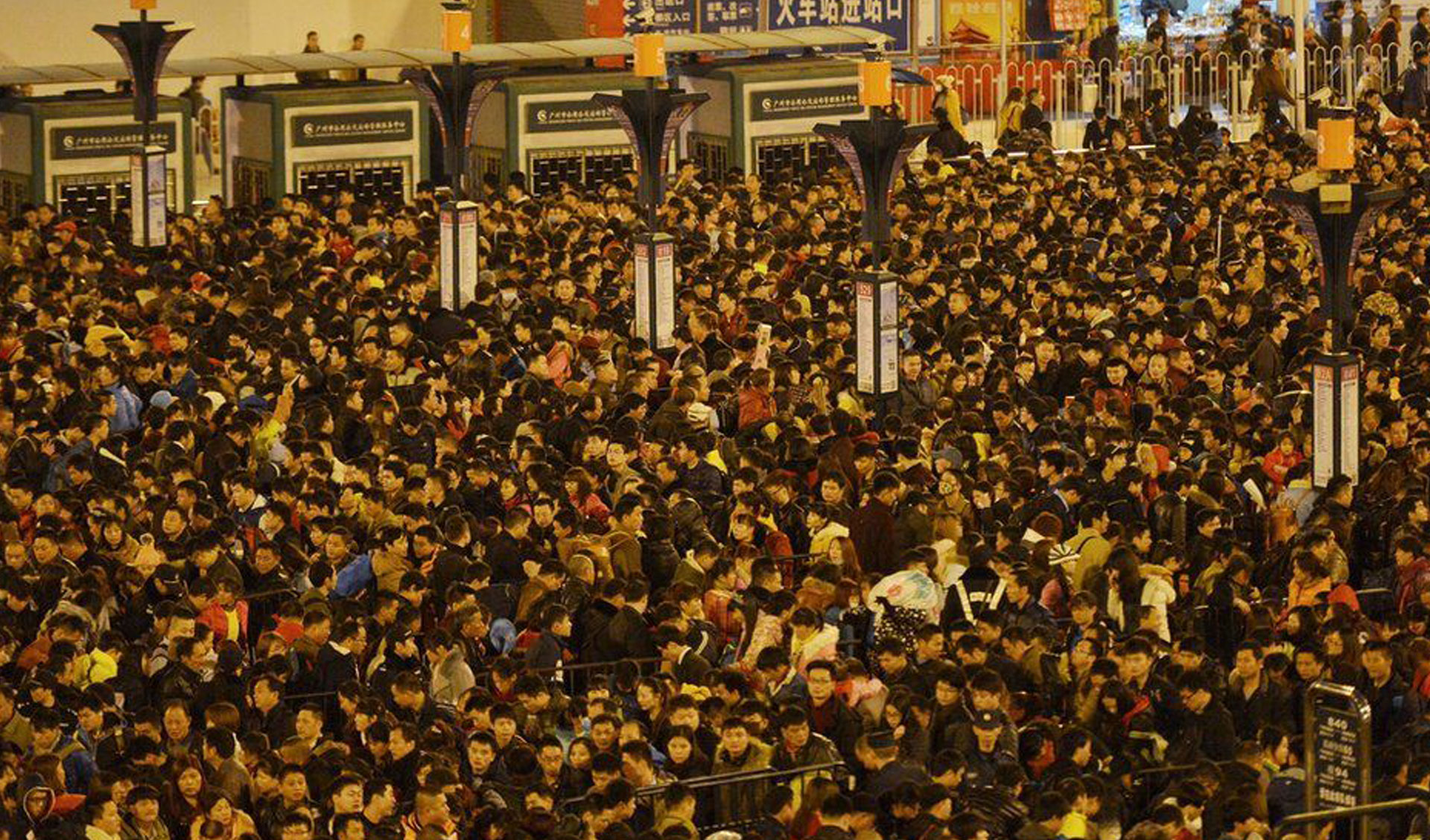
Lunar New Year travel chaos returns
The race for China to start living with Covid like the rest of the world continued, with quarantines for inbound travelers finally abandoned. One taste of normality that looks set to return with a vengeance this year after a three-year absence is the Lunar New Year travel chaos.
It is anticipated that over two billion journeys will be made by air, land, or sea during the extended holiday that begins on January 21, double the 1.04 billion trips made in 2022. As many Chinese haven't been able to return home for the past three years, the upcoming family reunions are much more meaningful this time, even if they've been tarnished by a few Covid cases.
While China finally ended its economy-destroying "zero Covid" policy in early December, the tsunami of new infections that followed had an equal if not more harmful effect on economic activity. Things should begin to get better in January as infections peak and then start to wane, though we may have to wait until next month for the situation to look anything positive.
The end-of-year rally for offshore-listed Chinese stocks continued as investors bet the new year could be the year of the China Concept Stock. The HSCEI began the year with a 6.7% jump for the week, while the iShares MSCI China ETF also rose 11%, and the broader HSI gained 6.3%.
After a couple of years of ice-cold relations, China and Australia appear to be showing signs of a thaw, with China reportedly allowing several companies to import Australian coal once again for the first time since 2020.
The quarrel began at the start of Covid when Australia joined other countries, particularly the United States, in calling for an examination of Covid's origin. But China slipped up as the ban led to national coal shortages and more expensive electricity. However, relations began to improve after a meeting of the foreign ministers from both countries last month.
In a fascinating new development in the U.S.-China chip battles, it was reported that American-based technology company Dell is planning to end its use of made-in-China chips by next year and has also told its suppliers to use fewer Chinese components. Dell is making a move as rival HP also reviews its supply chains and requests its suppliers diversify away from China.
It's uncertain whether there's any U.S. government coercion behind Dell's move or whether it's simply a business decision, with most guessing it's a bit of both as there's no reason for Dell to totally drop made-in-China chips, which includes chips made by foreign-owned companies in China as well as those produced by Chinese companies.
China continues to reduce momentum on its frenzied railway building after spending hundreds of billions of dollars to create the world's most extensive high-speed rail network. Recent data shows investment in the Chinese rail network fell 5.2% last year, while fixed asset investment fell by an even larger 12%, marking a third consecutive year of falls.
It's not surprising that the numbers are falling as there's a limit to the railway tracks that can be built. That's the same situation for the nation's infrastructure in general, which has seen over twenty years of non-stop construction, meaning other methods will have to be found to pump money into the economy and stimulate it.
Last week, one of the biggest corporate headlines came from the under-pressure Ant Group, which got the go-ahead from regulators to increase its registered capital by the equivalent of around $1.5 billion and bring in new investors.
The move led to speculation that the company may be moving back in favor with the central government two years after the dramatic last-minute IPO failure.
That would sync with other indications that Beijing is finally pulling back on its regulatory clampdowns of the last two years, which saw companies from online gaming to education and massive tech companies targeted. Among the recent hints that Apple was increasingly discouraged by China, one headline last week signaled a positive, with Luxshare added to the list of manufacturers that can make top-of-the-line iPhone models.
Luxshare has partnered with the U.S. company for over a decade and has been slowly increasing the products it makes for Apple. This move could even be considered an effort at diversification for Apple as almost all their manufacturers are Taiwanese, even though most of the manufacturing is done in China.
Following its stellar rise, the problems for electric vehicle (EV) market leader Tesla won't stop coming. According to reports, the company dropped prices for its Model 3 and Model Y cars in China between 5.5% and 14% last week. The reductions followed price cuts just three months ago, with China's EV market expected to suffer this year after rapid growth had been stimulated by two years of government subsidies, most of which have now ended. EV makers seem desperate to sell inventory as indicators point to a dramatic fall-off in demand.